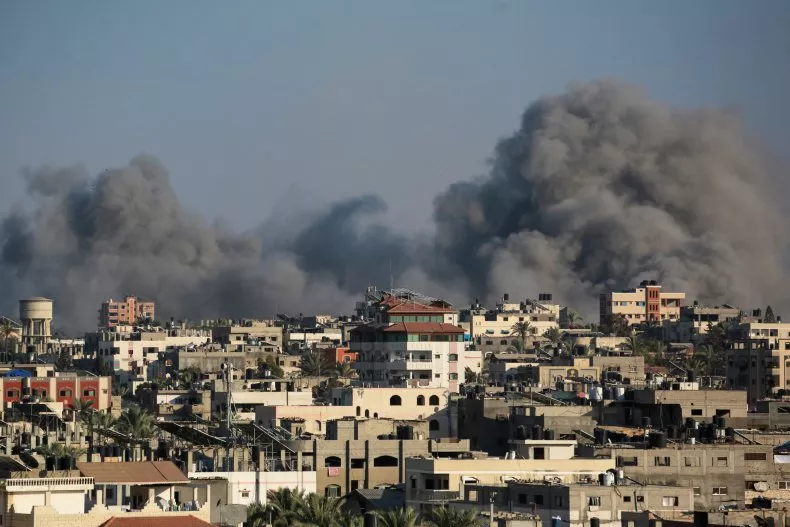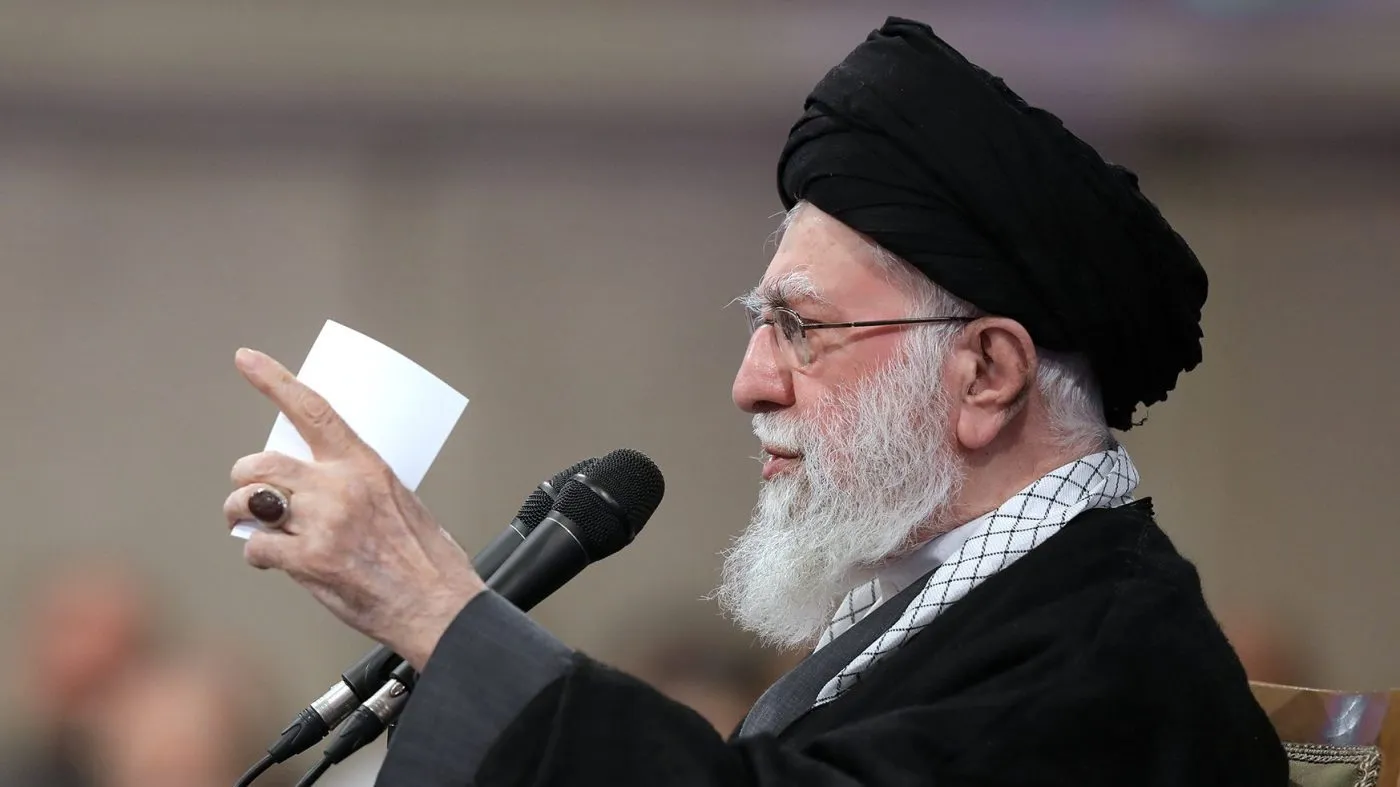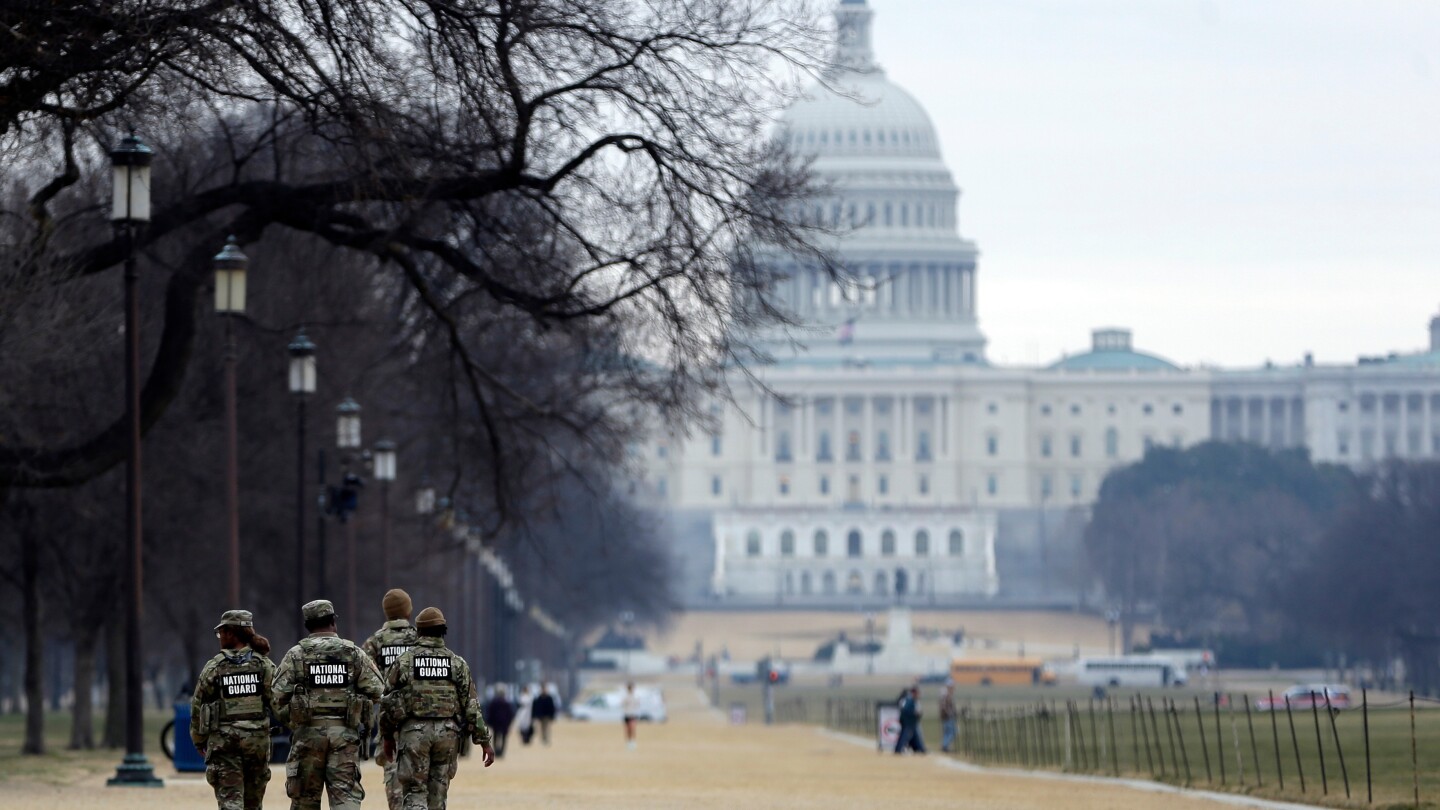Asenior Hamas official has accused U.S. President Joe Biden‘s administration of deliberately misrepresenting the level of progress achieved in ongoing negotiations toward a ceasefire in Gaza in order to put pressure on the Palestinian group.
The remarks, which were shared with Newsweek, came shortly after White House National Security Council Communications Advisor John Kirby told reporters on Monday that “enough progress” had been made by the parties to the discussions taking place in the Egyptian capital of Cairo “to a point where they felt like the next logical step was to have groups at lower levels sit down to hammer out these finer details.”
The working-level stage of talks, according to Kirby, “are of a much more detailed, specific nature than we’ve typically been able to talk about,” including the nature of the exchange of hostages held in Hamas captivity since the group led a surprise attack last October and Palestinians being held in Israeli prisons.
Hamas has not directly participated in the most recent rounds of negotiations, they have instead been represented by a delegation of mediators in Egypt and Qatar. Kirby stated during Monday’s press call that “Hamas continues to be represented as these working group meetings are going on as we speak and over the next few days.”
In response, Hamas spokesperson and Political Bureau member Basem Naim stated that “the movement is not participating in any negotiations in Cairo” and argued that “Kirby’s statements are an attempt to sell illusions to cover up the crimes of the occupation.”
“Washington is practicing a campaign of media pressure on the resistance,” Naim said in the comments shared with Newsweek.
The latest accusations came as Hamas repeatedly accused Israeli Prime Minister Benjamin Netanyahu of adding new conditions to the initial ceasefire proposal that was first unveiled by Biden in late May and accepted by Hamas on July 2.
“We will not accept the conditions that Netanyahu added to the July 2 proposal,” Naim said in his most recent statements.
Newsweek has reached out to the Office of the Israeli Prime Minister for comment.
Israeli officials have denied adding new demands that run against the initial spirit of the U.S. proposal, though Netanyahu has acknowledged certain commitments viewed by Hamas as incompatible with the deal.
These conditions, included in a July 27 letter from Netanyahu, include Israeli forces maintaining a presence in parts of Gaza, particularly the southern Rafah Crossing and Philadelphi Corridor as well as the Israeli military-established Netzarim Corridor that divides northern and southern Gaza, as well as Israeli officials maintaining a say over the details of the hostage and prisoner swap.
Earlier this month, U.S. Secretary of State Antony Blinken said that Netanyahu had accepted a bridging proposal put forth by the U.S., Egypt and Qatar in a bid to secure a breakthrough amid heightened regional tensions surrounding the unclaimed killing of Hamas Political Bureau chief Ismail Haniyeh in Tehran in late July. Netanyahu spoke positively of his meeting with the top U.S. diplomat, but representatives of family members of Israeli hostages and fallen soldiers later said the Israeli premier told them he had resisted U.S. pressure and would remain committed to defeating Hamas.
Israeli officials have also accused Hamas of rejecting existing proposals and adding their own conditions to the agreement, something the group has denied.
The original agreement, as outlined by Biden and backed by a United Nations Security Council draft resolution in June, would play out in three phases.
The first stage involves a six-week ceasefire, a withdrawal of Israeli forces from populated areas of Gaza, a limited exchange of hostages and prisoners and a surge in humanitarian aid to Gaza. The ensuing stages would result in a permanent cessation of hostilities, the release of remaining hostages held by Hamas, a total Israeli withdrawal and a plan to rebuild Gaza.
Hamas has called for early assurances that a lasting ceasefire would be reached in what has emerged as the longest and deadliest-ever war in Gaza.
The conflict began on October 7, 2023, when Hamas and allied Palestinian factions led an unprecedented attack on Israel, leading to what Israeli officials estimate to be the deaths of around 1,200 people. More than 40,000 have been killed in Gaza, according to the Palestinian Health Ministry based in the Hamas-held territory.
Fighting has also expanded beyond Gaza to include other fronts on which members of the Iran-aligned Axis of Resistance coalition are active. The Israel-Lebanon border has proven especially volatile as the Lebanese Hezbollah movement and Israel Defense Forces (IDF) have engaged in intensive clashes, including a pre-emptive Israeli strike over the weekend followed shortly by a massive barrage of Hezbollah rockets and drones.
The Israel Defense Forces (IDF) claimed to have intercepted the majority of the projectiles and to have destroyed a number of Hezbollah launchers. Speaking at a government meeting in Tel Aviv, Netanyahu said the IDF had delivered a “crushing blow” to Hezbollah and that “this is not the end of the story.”
In televised remarks that same day, however, Hezbollah Secretary-General Hassan Nasrallah, however, alleged that the operation had been carried out “as planned” and accused Israel of having “crossed all red lines” in its assassination of the group’s top military official, Fouad Shukr, in Beirut just hours before Haniyeh’s death in Tehran last month.
The IDF and Hezbollah both claimed new cross-border operations on Monday. Kirby, too, addressed the Israel-Hezbollah clashes as well as the looming threat of vengeance from Iran over Haniyeh’s killing.
“We’re going to make sure that going forward, Israel can continue to defend itself,” Kirby said. “We’re prepared to help defend them if we have to.”




